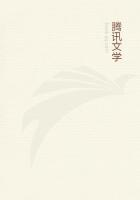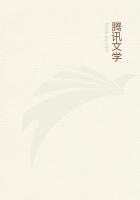I. (1) Plato is aware that language is not the work of chance; nor does he deny that there is a natural fitness in names. He only insists that this natural fitness shall be intelligibly explained. But he has no idea that language is a natural organism. He would have heard with surprise that languages are the common work of whole nations in a primitive or semi-barbarous age. How, he would probably have argued, could men devoid of art have contrived a structure of such complexity? No answer could have been given to this question, either in ancient or in modern times, until the nature of primitive antiquity had been thoroughly studied, and the instincts of man had been shown to exist in greater force, when his state approaches more nearly to that of children or animals. The philosophers of the last century, after their manner, would have vainly endeavoured to trace the process by which proper names were converted into common, and would have shown how the last effort of abstraction invented prepositions and auxiliaries. The theologian would have proved that language must have had a divine origin, because in childhood, while the organs are pliable, the intelligence is wanting, and when the intelligence is able to frame conceptions, the organs are no longer able to express them. Or, as others have said: Man is man because he has the gift of speech; and he could not have invented that which he is. But this would have been an 'argument too subtle' for Socrates, who rejects the theological account of the origin of language 'as an excuse for not giving a reason,' which he compares to the introduction of the 'Deus ex machina' by the tragic poets when they have to solve a difficulty; thus anticipating many modern controversies in which the primary agency of the divine Being is confused with the secondary cause; and God is assumed to have worked a miracle in order to fill up a lacuna in human knowledge. (Compare Timaeus.)
Neither is Plato wrong in supposing that an element of design and art enters into language. The creative power abating is supplemented by a mechanical process. 'Languages are not made but grow,' but they are made as well as grow; bursting into life like a plant or a flower, they are also capable of being trained and improved and engrafted upon one another. The change in them is effected in earlier ages by musical and euphonic improvements, at a later stage by the influence of grammar and logic, and by the poetical and literary use of words. They develope rapidly in childhood, and when they are full grown and set they may still put forth intellectual powers, like the mind in the body, or rather we may say that the nobler use of language only begins when the frame-work is complete.
The savage or primitive man, in whom the natural instinct is strongest, is also the greatest improver of the forms of language. He is the poet or maker of words, as in civilised ages the dialectician is the definer or distinguisher of them. The latter calls the second world of abstract terms into existence, as the former has created the picture sounds which represent natural objects or processes. Poetry and philosophy--these two, are the two great formative principles of language, when they have passed their first stage, of which, as of the first invention of the arts in general, we only entertain conjecture. And mythology is a link between them, connecting the visible and invisible, until at length the sensuous exterior falls away, and the severance of the inner and outer world, of the idea and the object of sense, becomes complete. At a later period, logic and grammar, sister arts, preserve and enlarge the decaying instinct of language, by rule and method, which they gather from analysis and observation.
(2) There is no trace in any of Plato's writings that he was acquainted with any language but Greek. Yet he has conceived very truly the relation of Greek to foreign languages, which he is led to consider, because he finds that many Greek words are incapable of explanation. Allowing a good deal for accident, and also for the fancies of the conditores linguae Graecae, there is an element of which he is unable to give an account.
These unintelligible words he supposes to be of foreign origin, and to have been derived from a time when the Greeks were either barbarians, or in close relations to the barbarians. Socrates is aware that this principle is liable to great abuse; and, like the 'Deus ex machina,' explains nothing. Hence he excuses himself for the employment of such a device, and remarks that in foreign words there is still a principle of correctness, which applies equally both to Greeks and barbarians.
(3) But the greater number of primary words do not admit of derivation from foreign languages; they must be resolved into the letters out of which they are composed, and therefore the letters must have a meaning. The framers of language were aware of this; they observed that alpha was adapted to express size; eta length; omicron roundness; nu inwardness; rho accent rush or roar; lambda liquidity; gamma lambda the detention of the liquid or slippery element; delta and tau binding; phi, psi, sigma, xi, wind and cold, and so on. Plato's analysis of the letters of the alphabet shows a wonderful insight into the nature of language. He does not expressively distinguish between mere imitation and the symbolical use of sound to express thought, but he recognises in the examples which he gives both modes of imitation. Gesture is the mode which a deaf and dumb person would take of indicating his meaning. And language is the gesture of the tongue; in the use of the letter rho accent, to express a rushing or roaring, or of omicron to express roundness, there is a direct imitation; while in the use of the letter alpha to express size, or of eta to express length, the imitation is symbolical. The use of analogous or similar sounds, in order to express similar analogous ideas, seems to have escaped him.















